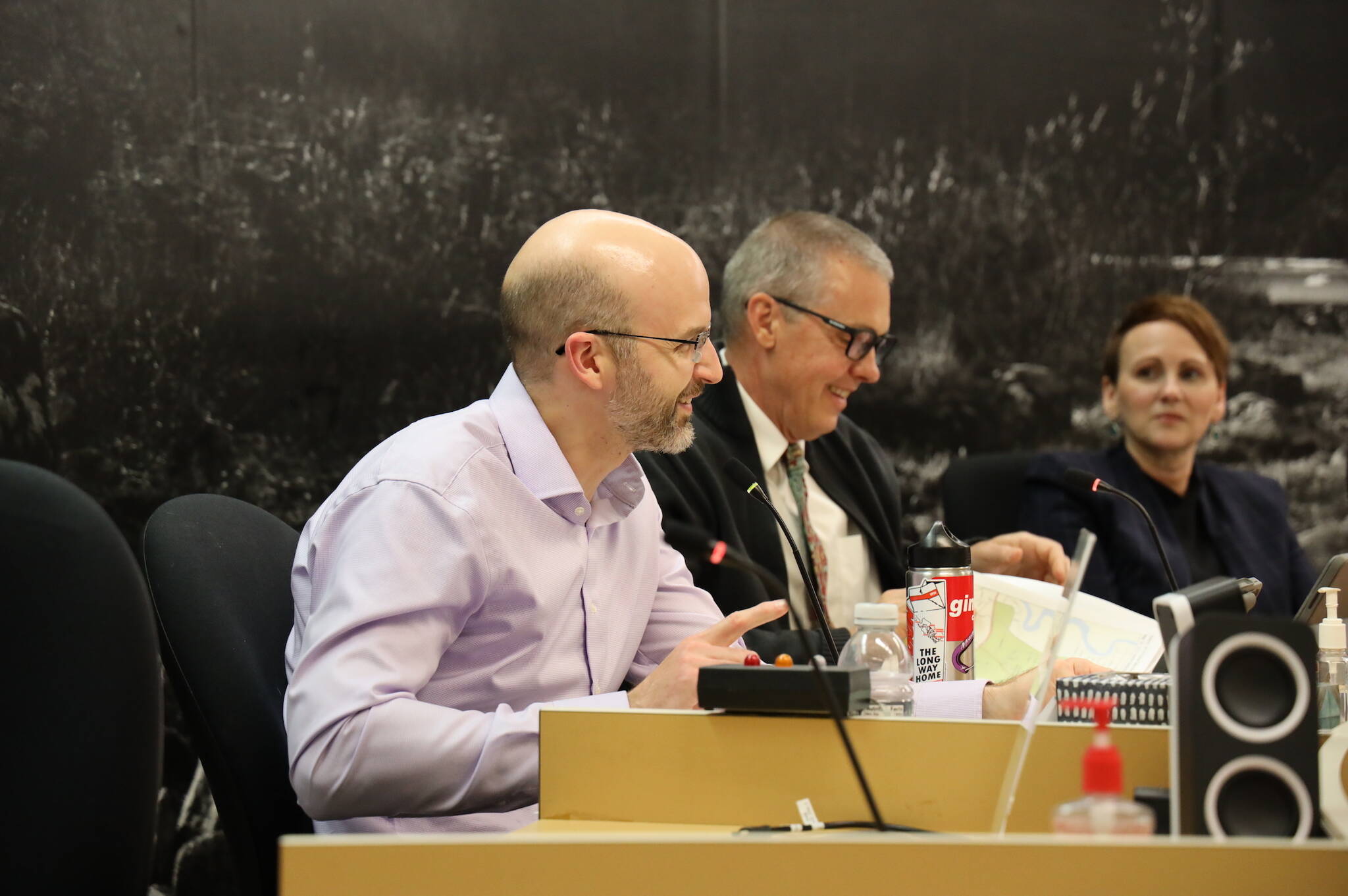The City and Borough of Juneau is ramping up its role in addressing the lack of affordable and reliable child care in the capital city after years in a “crisis mode.”
Monday evening, Assembly members meeting as the Committee of the Whole OK’d the city to begin soliciting proposals to offer funding for one to two child care start-up grants to local providers and facility owners.
According to Deputy City Manager Robert Barr, the city’s first priority with the grant funding — estimated to be between $70,000 and $100,000 — is to fund the opening of one to two new center-based or large-home-based child care centers in the borough.
With any remaining funds, the city will also attempt to make a second round of grant funding available to existing providers that are looking to expand or need some financial stability.
The funding for this program will be pulled from whatever balance is remaining at the fiscal year ending in June from the city’s current per child stipends grant program. With the Assembly’s approval Monday night, Barr said the city, alongside the Southeast Alaska Association for the Education of Young Children, will begin developing the scope of the program in the coming months.
Since 2018, Alaska has seen a 20% drop in its child care workforce, and the annual cost of care per child in the state costs more than a year of tuition and fees at any University of Alaska campus, according to a 2020 study by the Alaska Department of Labor and Workforce Development. At a national level, nearly 9,000 child care centers closed between December 2019 and March 2021, according to a study by ChildCare Aware of America.
According to Blue Shibler, executive director of AEYC, Juneau’s child care system is in “crisis mode” and city involvement has become necessary.
“I think the city has no choice but to do it,” Shibler said. “They have throughout years of working on this issue acknowledged that child care is a huge factor in the health of the community, and I think they have no choice because there isn’t anything being done at the state level, federal funding is inadequate, and it really falls on community to fund what they want to prioritize.”
Shibler said one of the biggest challenges for Juneau’s child care system is finding and retaining enough employees to run centers at full capacity. Currently, there are enough licenses in Juneau to be able to provide 450 spaces of child care throughout the city. However, only about half of those spaces are allowed to be filled due to the lack of workers to meet the mandated staff-child ratios established by the state.
According to Barr, the city is also attempting to alleviate some of the child care workforce challenges with a new plan to implement a per-employee stipend program that will begin during the next fiscal year.
With available funding for the program, estimated to be $400,000, the city anticipates being able to raise local wages by approximately $2.5-$3 per hour.
That $400,000 is the first round of the $2.5 million of funding that voters approved to go toward child care during October’s municipal election. That $400,000 will become available for use starting in July. The remainder of the $2.5 million will be allocated over the next five years, pulled from the city’s temporary 1% sales tax.
The city also applied for an additional $2 million in funding from thread, an Alaska child care resource and referral network which works to advance the quality of early education and child development across the state, and the State Child Care Program Office, which is still pending.
Shibler said the recently OK’d start-up childcare grant program is “significant” and she’s hopeful that it will provide some relief to the community soon. She said the funding and programs from the 1% sales tax will add to that positive growth.
“This is a huge priority for us and we’re going to make it happen as soon as we possibly can. I’m hopeful we’ll find a new operator to add capacity to what we have now, and they will be able to hire and add staff to the workforce,” she said. “In Juneau, we were not meeting demand before the pandemic, and were just now emerging from the pandemic and the need and demand is still at critical and at a crisis level — but there’s growth.”
• Contact reporter Clarise Larson at clarise.larson@juneauempire.com or (651)-528-1807. Follow her on Twitter at @clariselarson.

